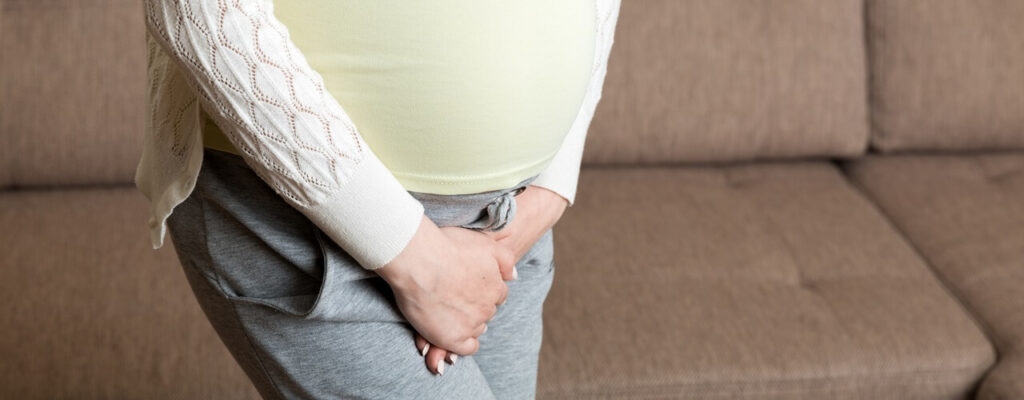Navigating the Journey: Managing Incontinence During Pregnancy

Meet Leslie, an expecting mother eagerly anticipating the arrival of her baby. However, along with the joys of pregnancy came unexpected challenges. Leslie struggled with urinary incontinence, a common yet often overlooked issue during pregnancy. The constant urge to urinate and occasional leaks disrupted her daily routine and dampened her excitement for the journey ahead. If you resonate with Leslie’s experience, know you’re not alone. At our clinic, we understand the challenges of managing incontinence during pregnancy, and we’re here to help you navigate this journey with confidence.
Want to learn more about physical therapy for managing incontinence during pregnancy? Call our team at Smith Physical Therapy & Wellness in Taft, TX today!
Understanding Incontinence During Pregnancy: Causes and Symptoms
Symptoms
Urinary Leakage
- One of the hallmark symptoms of incontinence during pregnancy is the involuntary leakage of urine, which can occur with activities such as coughing, sneezing, laughing, or lifting.
Frequent Urination
- Pregnant women often experience an increased need to urinate, especially during the first and third trimesters. This frequent urge to urinate can disrupt sleep patterns and daily activities.
Urinary Urgency
- Many women with incontinence during pregnancy report a sudden and intense urge to urinate, often accompanied by difficulty holding urine until reaching a restroom.
Nocturia
- Nocturia refers to the need to urinate frequently during the night, disrupting sleep and contributing to fatigue and daytime drowsiness.
Pelvic Pressure or Discomfort
- Some women may experience the feeling of pelvic heaviness, pressure, or discomfort, especially when standing for prolonged periods or engaging in physical activity.
Causes
Hormonal Changes
- During pregnancy, hormonal fluctuations, particularly elevated levels of progesterone and relaxin, can affect the function of the pelvic floor muscles and the bladder sphincter, leading to decreased muscle tone and control.
Increased Intra-abdominal Pressure
- The growing uterus exerts pressure on the bladder and surrounding pelvic organs, contributing to stress urinary incontinence, the most common type of incontinence during pregnancy.
Weakened Pelvic Floor Muscles
- Pregnancy and childbirth can weaken the pelvic floor muscles, which are crucial for supporting the bladder and maintaining urinary continence. Weakness in these muscles can result in urinary leakage and other incontinence symptoms.
Previous Childbirth
- Women who have given birth vaginally or experienced traumatic deliveries are at a higher risk of developing incontinence during subsequent pregnancies due to potential damage to the pelvic floor muscles and nerves.
Constipation
- Constipation, a common complaint during pregnancy, can exacerbate incontinence symptoms by increasing pressure on the pelvic floor and worsening bladder control.
By recognizing the symptoms and understanding the underlying causes of incontinence during pregnancy, women can seek appropriate support and interventions for effective management. Through personalized care and targeted interventions, physical therapy can play a crucial role in alleviating symptoms and improving bladder function during pregnancy.
How Physical Therapy Can Help You Find Relief from Incontinence During Pregnancy
Leslie’s determination to address her incontinence during pregnancy led her to seek physical therapy. We offer a tailored approach to addressing this common issue, focusing on strengthening the pelvic floor muscles, improving bladder control, and enhancing overall pelvic health. Our experienced therapists can help you find relief and regain confidence in your body through personalized treatment plans.
Leslie’s Success: A Personal Journey Through Treatment
Pelvic Floor Muscle Training
- Pelvic floor muscle training, also known as Kegel exercises, is a cornerstone of managing incontinence during pregnancy. Leslie learned to correctly identify her pelvic floor muscles and how to engage them in targeted pelvic exercises. Leslie strengthened these muscles by incorporating regular pelvic floor muscle training into her daily routine, improving bladder control and reducing urinary leakage.
Bladder Training
- Bladder training is a behavioral therapy technique to help improve bladder function and reduce urinary urgency and frequency. Leslie’s physical therapist guided her through personalized bladder training protocols, which involved gradually increasing the intervals between bathroom trips and practicing techniques to delay urination. Leslie gained greater control over her urinary function by retraining her bladder and establishing healthier voiding habits.
Education and Lifestyle Modifications
- Leslie’s physical therapist provided valuable education on lifestyle modifications to support her pelvic health and minimize incontinence symptoms. This education included guidance on maintaining a healthy weight, adopting proper body mechanics, and avoiding activities that could exacerbate pelvic pressure, such as heavy lifting or straining during bowel movements. Leslie also received practical tips on hydration, nutrition, and posture to optimize bladder function during pregnancy.
Supportive Devices and Techniques
- In some cases, supportive devices such as pelvic support belts or pessaries can help alleviate pelvic discomfort and provide extra support to the pelvic floor muscles. Leslie’s physical therapist assessed her needs and offered guidance on using supportive devices to enhance comfort and mobility during pregnancy. Additionally, Leslie learned relaxation techniques and stress management strategies to minimize pelvic tension and promote overall well-being.
Through personalized physical therapy treatment, Leslie navigated her pregnancy with confidence and was able to embrace the joys of motherhood with improved bladder function and comfort.
Empowering Progress: Taking Charge of Your Pregnancy Journey
Leslie’s journey in managing incontinence during pregnancy serves as a testament to the effectiveness of physical therapy in providing relief and support. If you’re experiencing similar symptoms, don’t let it hinder your journey to motherhood. Participating in physical therapy can provide the support and guidance you need to manage this common condition effectively.
Call our team to learn more about managing incontinence during pregnancy and discover how our comprehensive approach to care can help you enjoy a healthier, more comfortable pregnancy, just like Leslie did.

